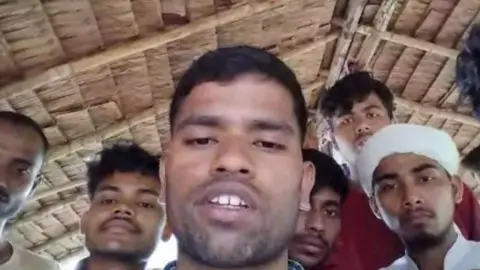Across Europe, leaders are increasingly united in their support for stringent immigration policies. Migrant rights advocates are seeing their influence wane, while centrist and conservative factions push for reforms to facilitate deportations and limit refugee entries.
Since the election of hardline politicians like Giorgia Meloni in Italy, the narrative surrounding immigration has changed dramatically. Nicola Procaccini, a seasoned figure in the European Parliament, stated that what was once deemed extremist has now gained traction among mainstream politicians who are adopting tougher stances on migration.
In pursuit of stricter immigration control, various governments are implementing measures reminiscent of Denmark's "zero" refugee policy, which has garnered interest among EU leaders. Additionally, the EU is considering agreements that would facilitate the transfer of asylum seekers to non-EU countries. Recent initiatives include deploying agents to bolster border security in Bosnia and Herzegovina, a country outside the EU.
Despite a temporary uptick in unauthorized border crossings following the pandemic, officials have reported a decline in irregular migration recently. This may reflect the effectiveness of new policies as EU countries grapple with balancing humanitarian obligations against a rising call for security and control over migration flows.
While the situation in Europe has not sparked the same level of controversy as policies under President Trump in the United States, it nonetheless marks a significant evolution in the approach to immigration, as leaders from across the political spectrum work to reshape the future of migration in the region.
Since the election of hardline politicians like Giorgia Meloni in Italy, the narrative surrounding immigration has changed dramatically. Nicola Procaccini, a seasoned figure in the European Parliament, stated that what was once deemed extremist has now gained traction among mainstream politicians who are adopting tougher stances on migration.
In pursuit of stricter immigration control, various governments are implementing measures reminiscent of Denmark's "zero" refugee policy, which has garnered interest among EU leaders. Additionally, the EU is considering agreements that would facilitate the transfer of asylum seekers to non-EU countries. Recent initiatives include deploying agents to bolster border security in Bosnia and Herzegovina, a country outside the EU.
Despite a temporary uptick in unauthorized border crossings following the pandemic, officials have reported a decline in irregular migration recently. This may reflect the effectiveness of new policies as EU countries grapple with balancing humanitarian obligations against a rising call for security and control over migration flows.
While the situation in Europe has not sparked the same level of controversy as policies under President Trump in the United States, it nonetheless marks a significant evolution in the approach to immigration, as leaders from across the political spectrum work to reshape the future of migration in the region.





















